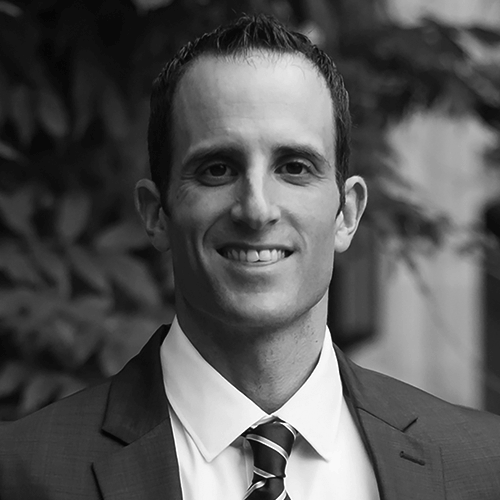
Andrew Belasco
CEO, College Transitions
What is the biggest challenge students and families face when preparing
for college?
Meeting the costs of a higher
education. With colleges becoming increasingly expensive, students and
parents must familiarize themselves with the individuals and/or resources that
can help facilitate sound college-related decisions.
If families can better understand
how a prospective college meets the needs of its students, they are more likely
to minimize costs and maximize the benefits a higher education. As college planners,
we work with our families to realize these outcomes, in particular, by
providing them with the data-driven and outcomes-based advice they need to
identify good-fit schools and ensure a return on their investment.
What are the top three things families
and students should consider?
Career goals, personal preferences,
and institutional outcomes. For example, deciding to pursue a career in
either medicine or science improves the possibility that one prioritizes
affordability (to save for further education) and pursues campus-based
opportunities (research, shadowing, etc.) that improve her graduate school
prospects.
As this student works toward her
goals, challenges inevitably arise and compel her to draw on campus-based
resources. Knowing beforehand that she prefers a small college with accessible
professors and a tight-knit community enables her to choose an institution that
can help her effectively meet these challenges. Finally, identifying
institutions with an excellent record of medical and graduate school placement
ensures that she enrolls at a school where her efforts are well rewarded.
What do you think ultimately makes a
student successful in their academic pursuits?
A willingness to be uncomfortable.
In an increasingly competitive economy, a college degree is necessary but no
longer sufficient for entry into many sought-after careers. In order to prove
successful and stand out, today’s undergraduates must obtain real skills in
addition to a credential.
Whether learning to write, code, or speak another language, building competence often requires that students move beyond their comfort zone and take on tasks that test their limits. If students can learn to tolerate or, better yet, embrace discomfort, they allow room for further growth, and eventually, for opportunities that lead to both mastery and distinction.

Mike Nelson
CEO of Global Travel Insurance and the Americas Region, Allianz Worldwide Partners
What is the biggest challenge students and families face when preparing for college?
The transition to college is stressful for everyone, no matter what. There’s excitement, of course, but also worry. Families have been saving a lifetime for this. What if something unexpected comes up, like an illness, injury or something else out of the blue? Tuition insurance can give families greater peace of mind when sending their children off to college — and an affordable way to protect the most important investment they’ll ever make.
What are the top three things families and students should consider?
Stay connected. Stay safe. Stay healthy. Before school starts, determine what you’ll do to stay connected, including how often you’ll be in touch. Do your research on strategies for staying safe on campus. Make sure your student has a plan for maintaining their good health (eating well, getting enough rest, et cetera). This is particularly important if your student has a chronic or pre-existing condition.
What do you think ultimately makes a student successful in their academic pursuits?
Successful students have a strong support system. This includes immediate family, of course, but also friends, roommates, RAs — even professors and counselors. They know their network will help them stay safe, stay healthy and stay on track academically.

Robin Whitmore
Executive Director, Zenith Tutoring
What is the biggest challenge when preparing for college?
Time management. As the college admissions process becomes more demanding every year, students are faced with ever increasing pressure to get good grades, high standardized test scores, and participate in (or even lead) an assortment of extracurricular activities. This is a lot to juggle for a teenager, and probably for many adults as well.
It is important for students to start planning early and allocate their time and energy far in advance of any upcoming deadline or activity. Planning in advance leads to better academic and personal performance, allowing students to build confidence and subject interest in a way they might not have been able to if they were feeling limited by time.
What are the top three things families and students should consider?
First, coursework. Plan out your classes, target a high GPA, and make sure you complete any classes recommended for your intended major beyond the general requirements (such as an additional year of a language, or higher level math). When considering advanced coursework, keep in mind that grades are the largest factor in the admissions process simply because it is a body of work that accumulates over the entire four years of high school. Instead of signing up for every advanced course offered, be respectful of your time and energy limitations and focus on excelling in the classes you do take.
Next are extracurriculars. Before or early in your freshman year, try a variety of clubs or volunteer opportunities to see what interests you. By the end of your freshmen year, ideally, you’ll have honed in on an extracurricular activity or two that you will continue to pursue for all four years of high school. This demonstrates your commitment and passion to colleges, not to mention giving you a chance to grow as a person and as a leader in those extracurriculars.
Finally, standardized tests. Aim to get great SAT/ACT and SAT Subject Test scores, and start early. If you have a year or more to prepare for these tests, it is possible to make a huge improvement in your score. It is possible for virtually any student to achieve a near-perfect score on the SAT or ACT — but you need to start early. For example, if you have just completed AP Chemistry, then it is a good idea to take the SAT Subject Test in chemistry the following May or June.
What makes a student successful in their academic pursuits?
Ultimately, what makes a student successful in his or her college pursuit is passion. College admissions boards love applicants who are academically and socially minded, have clear leadership ability, and are driven to pursue their passions. Sometimes students don’t know exactly what they want right away, and that’s okay. Fortunately, the best way to grow a student’s passion is the same way that he or she would demonstrate it to a college admissions board — through action.
For example, say you have an interest in engineering fostered by your childhood lego set. You could explore this latent passion further by joining an engineering club at school, taking an internship at a company that has technology you admire, participating in scientific research, or organizing an event or competition around a project in which you are interested. By exploring your passions through these demonstrable actions (along with relevant coursework, good grades, and test scores), you can stand out as an exceptional college applicant.
Staff, [email protected]

